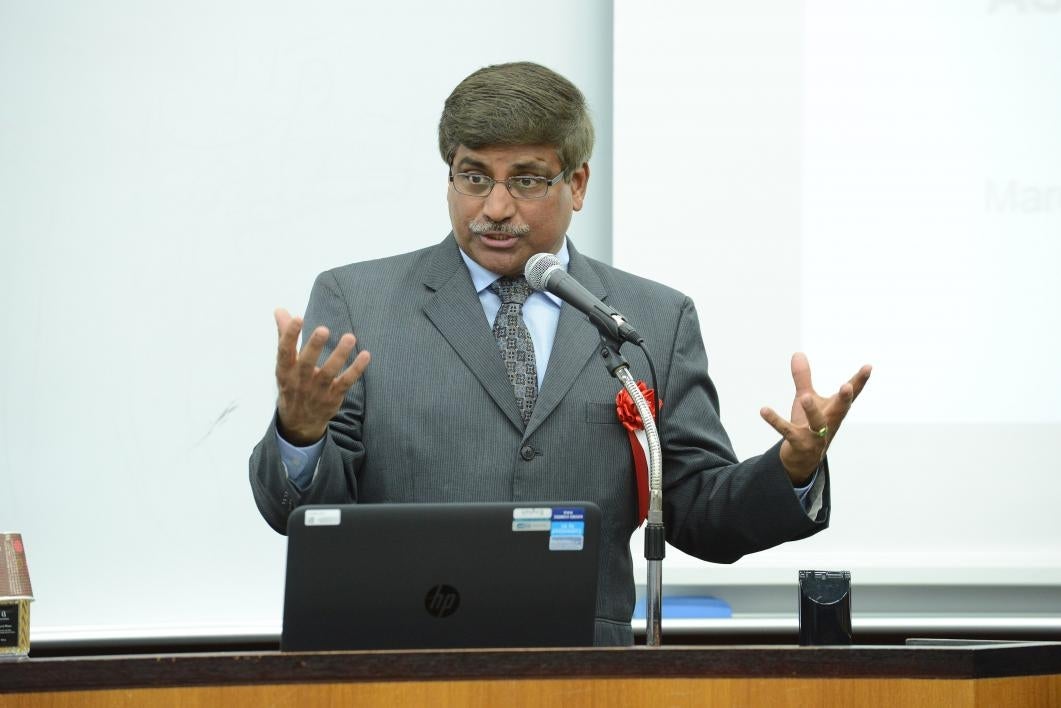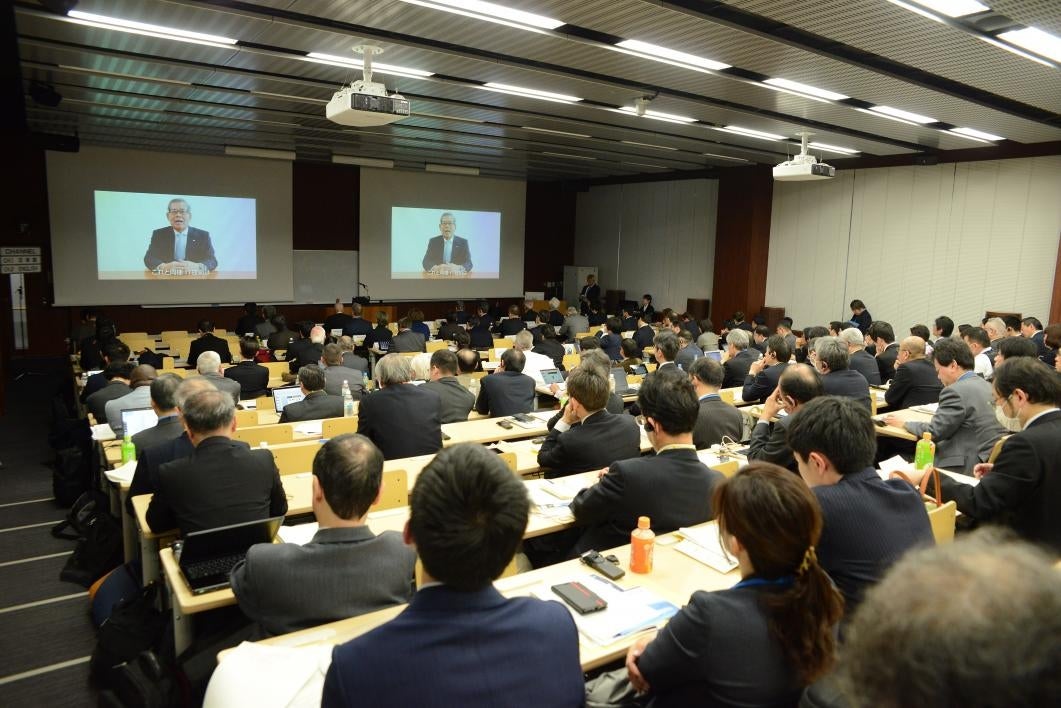ASU enters international partnership to accelerate research collaborations, educational reforms in Japan

From left to right: Troy McDaniel, associate director of Center for Cognitive Ubiquitous Computing (CUbiC); Satoshi Watanabe of Hiroshima University; Derrick Anderson, adviser to the president; Sethuraman Panchanathan, chief research and innovation officer and executive vice president of ASU’s Knowledge Enterprise Development; Nadya Bliss, director of the Global Security Initiative; Luke Tate, assistant vice president and executive director of opportunity initiatives and Professor Yohsuke Yamamoto of Hiroshima University pose for a photo in Toyko during a Japan-U.S. Digital Innovation Hub event.
Committed to finding pedagogical solutions and educational reforms beneficial to every Japanese citizen, Japan’s universities have begun forging international relationships to face their unique challenges — including a rapidly aging, shrinking population and changing economy.
Arizona State University, along with seven other U.S. universities, has entered into an ambitious collaboration with eight Japanese universities to promote international, cross-institution partnerships and cooperative research.
Through the Japan-U.S. Digital Innovation Hub, the sixteen institutions aim to facilitate and promote research collaboration, especially in fields such as data science, artificial intelligence and cybersecurity. The hope is that the hub will serve as a platform to create educational projects to develop necessary skills for the digital age.
“The future of education is rapidly changing, providing an exciting and unprecedented opportunity for forward-thinking universities to shape the next iteration,” said Sethuraman Panchanathan, chief research and innovation officer and executive vice president of ASU’s Knowledge Enterprise Development. “As institutions of higher learning, we can empower individuals with the mindsets necessary to succeed in a continually evolving economic and technological landscape.”
From March 19-20, representatives from the hub’s member universities, as well as Japanese government officials, gathered at the University of Tsukuba’s campus in Tokyo for a workshop to discuss the future of the Japan-U.S. Digital Innovation Hub.
Along with Panchanathan, ASU’s delegation included Luke Tate, assistant vice president and executive director of opportunity initiatives; Nadya Bliss, director of the Global Security Initiative; Troy McDaniel, associate director of the Center for Cognitive Ubiquitous Computing (CUbiC) and Derrick Anderson, adviser to the president.
Panchanathan presented a keynote speech to the assembled representatives and guests, who included Yasuo Fukuda, former prime minister of Japan and Michael Chertoff, former secretary of the U.S. Department of HomeIand Security. Both Fakuda and Chertoff delivered lectures as well.
Panchanathan’s keynote covered the accelerating pace of knowledge creation, lifelong learning, the future of work and the relative role of universities. These topics are of particular interest to universities in Japan as the nation weathers great economic and demographic change.
The enormous economic growth of the '80s and '90s, spurred by advanced manufacturing and electronics, has slowed in the past two decades as the population is both declining and becoming older. More than 22 percent of Japanese citizens are 65 or older and working-age adults are either having fewer children later or forgoing parenting altogether. These factors are leading to predictions of an overall population decline of more than 30 percent by 2060, when more than 40 percent of the population will be 65 or older.
This uncertain future is challenging universities in Japan to reconsider the role they have in the broader societal context, said Anderson.
“Within that challenge, many Japanese institutions have connected with ASU out of interest in learning more about the design for a New American University and how that thinking could benefit Japanese higher education reforms,” he added.
The hub’s next summit is slated for summer 2018. ASU will host the event at the newly opened Barrett & O’Connor Washington Center in Washington, D.C.
Japanese universities participating in the initiative are Osaka University, Hiroshima University, Kyushu University, Keio University, Nagoya University, Tohoku University, University of Tsukuba and Waseda University.
In addition to ASU, Case Western Reserve University; University of Delaware; Johns Hopkins University; North Carolina State University; Ohio State University; Washington University in St. Louis and University of Maryland, Baltimore County comprise the U.S. institutions in the Japan-U.S. Digital Innovation Hub.
More Local, national and global affairs

Overdose crisis involves more than opioids, says ASU social work professor
News coverage about the escalating number of drug overdoses in the United States can lead many to conclude that so long as you’re…

What’s next for unions? ASU center investigates evolving strategies in new report
Port workers hanging up their hats on the East Coast. Starbucks employees putting down their aprons before Christmas. Ski…

Protecting national security in a rapidly changing world
As the 21st century dawned, the challenges facing our nation and the world — such as cyberthreats, resource scarcity and space…

